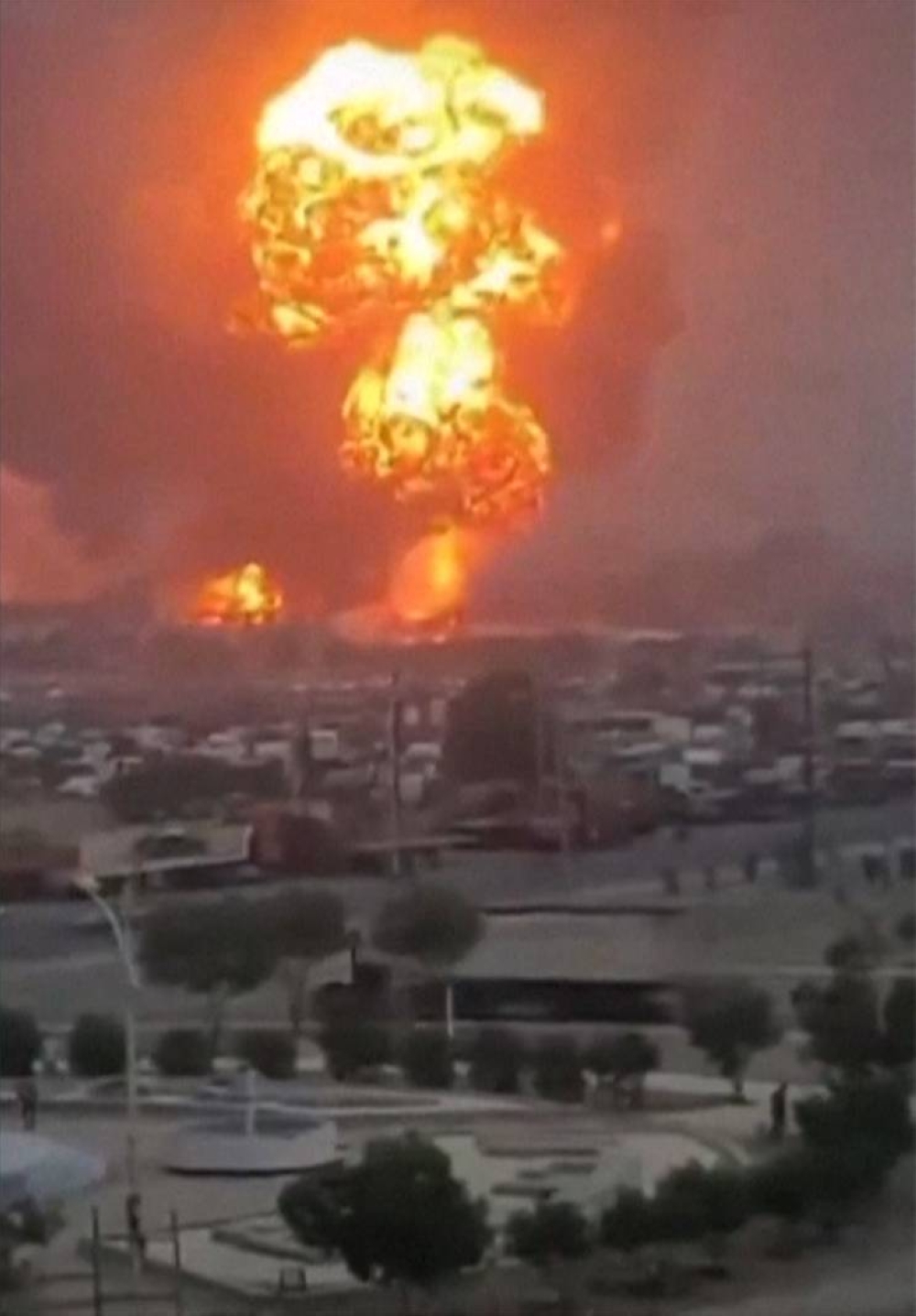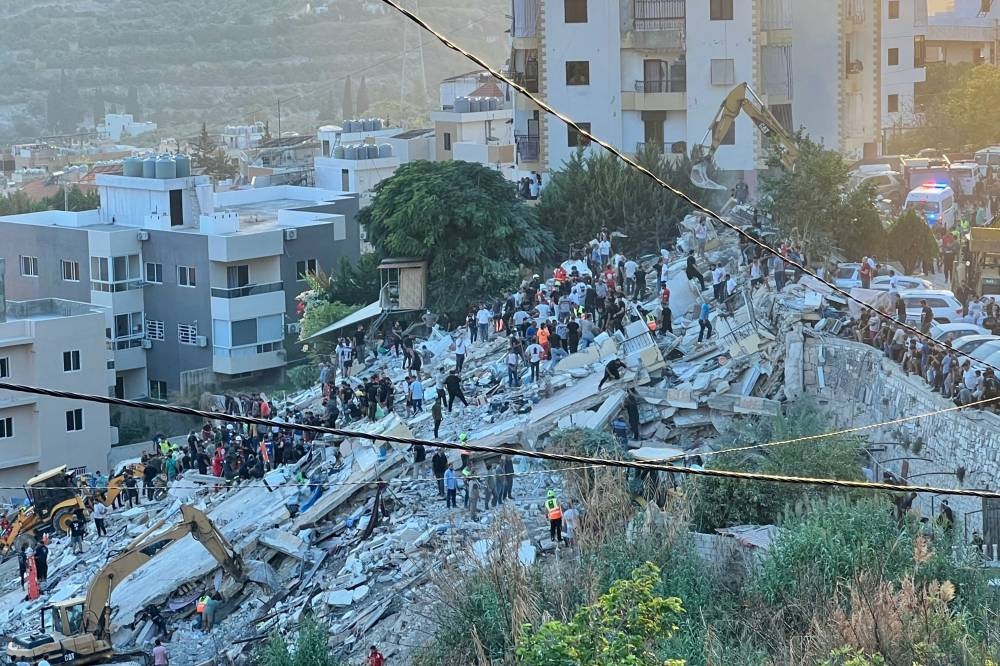Israel said it bombed Houthi targets in Yemen Sunday, expanding its confrontation with Iran's allies in the region two days after killing the Hezbollah leader Sayyed Hassan Nasrallah in an escalating conflict in Lebanon.
The airstrikes on Yemen's port of Hodeidah were in response to Houthi missile attacks on Israel in recent days, Israel said, amid fears that Middle East fighting could spin out of control and draw in Iran and Israel's main ally the US.
The Houthi-run health ministry said at least four people were killed and 29 wounded.
The strikes took place as Israel attacked more targets in Lebanon, where its intensifying bombardment over two weeks has killed a string of top Hezbollah leaders and driven hundreds of thousands of people from their homes.
Israel vowed to keep up its assault.
Lebanon's Health Ministry said Israeli strikes Sunday had killed 32 people in Ain Deleb in the south and 21 people in Baalbek-Hermel in the east and that 14 medics had been killed in airstrikes over the past two days.
Israeli drones hovered over Beirut overnight and for much of Sunday, with the loud blasts of new airstrikes echoing around the Lebanese capital.
Hezbollah and Israel have been trading fire across the border since the start of the war in Gaza on Oct. 7. Yemen's Houthis have launched sporadic attacks on Israel throughout that time and disrupted Red Sea shipping.
Israel rapidly ramped up its attacks on Hezbollah two weeks ago with the declared goal of making northern areas safe for residents to return to their homes, killing much of the group's leadership. Israel's defense minister is now discussing widening the offensive.
Nasrallah's death dealt a particularly significant blow to the group which he led for 32 years, and it was followed by new Hezbollah rocket fire on Israel, while Iran said his death would be avenged.
The US has urged a diplomatic resolution to the conflict in Lebanon, but has also authorised its military to reinforce in the region in a sign of the growing unease.
US President Joe Biden, asked if an all-out war in the Middle East could be avoided, said "It has to be." He said he will be talking to Israeli President Benjamin Netanyahu but did not elaborate.
US Senator Mark Kelly, who leads a Senate Armed Services subcommittee, said the bomb that Israel used to kill Nasrallah was an American-made 900-kg guided weapon.
In Iran, senior figures mourned the death of a senior Revolutionary Guards member killed alongside Nasrallah, and Tehran called for a UN Security Council meeting on Israel's actions.
Iranian Supreme Leader Ayatollah Ali Khamenei was moved to a secure location in Iran after Nasrallah's killing, sources told Reuters.
Nasrallah's body was recovered intact from the site of Friday's strike, a medical source and a security source said. Hezbollah has not yet said when his funeral will be held.
Lebanon's Health Ministry said more than 1,000 Lebanese were killed and 6,000 wounded in the past two weeks, without saying how many were civilians. The government said a mn people — a fifth of the population — had fled their homes.
Dozens of Israeli aircraft including fighter jets had attacked power plants and Rass Issa and Hodeidah ports, accusing the Houthis of operating "under the direction and funding of Iran" and in cooperation with Iraqi militias.
Israeli Defense Minister Yoav Gallant said: "Our message is clear — for us, no place is too far".

An image grab taken from a video posted on social media Sunday, shows smoke billowing above Yemen's rebel-held Hodeida port city following Israeli strikes.

First responders inspect the rubble of a building after it was targeted by an Israeli airstrike in the southern Lebanese village of Ain El Delb Sunday.
